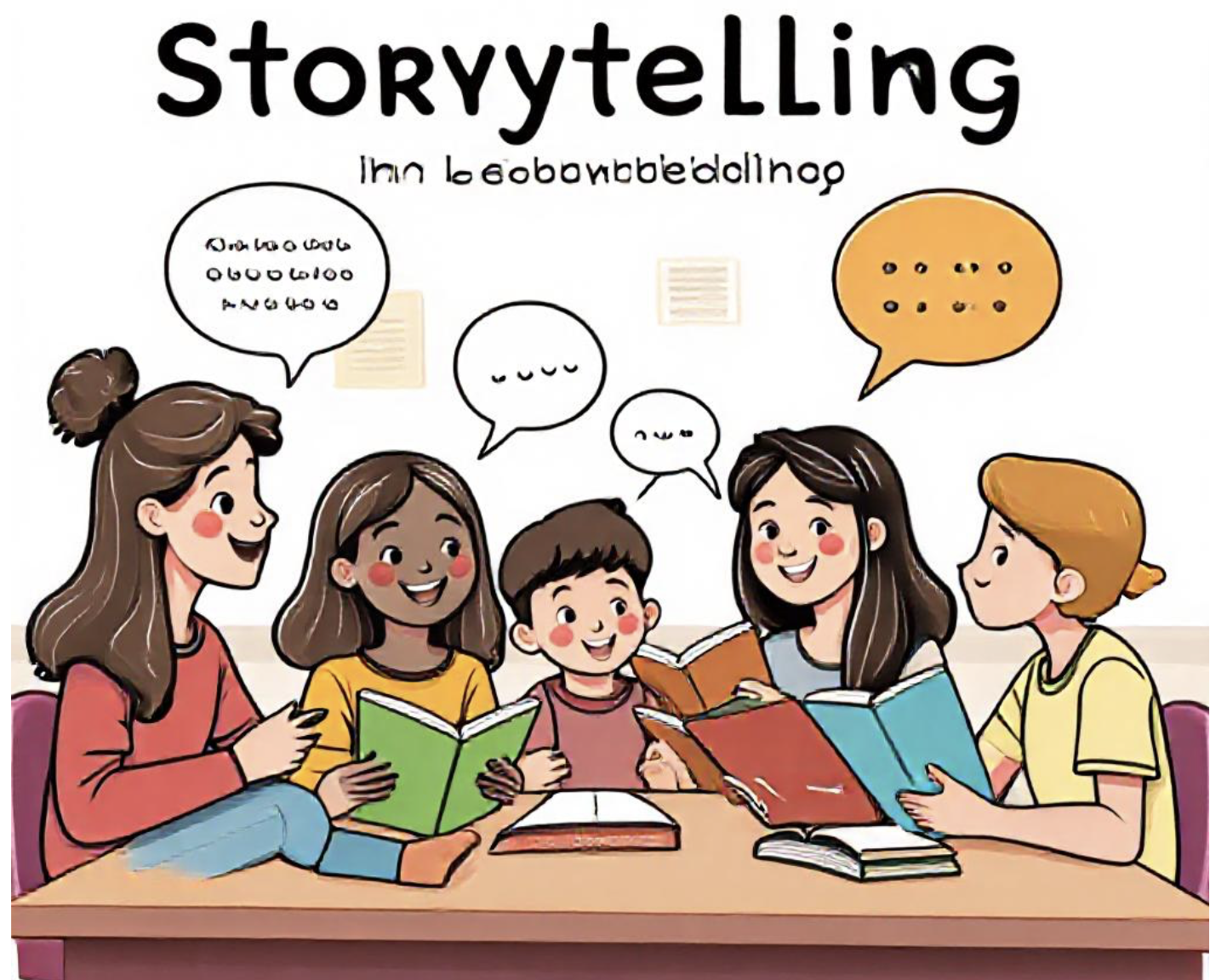Storytelling in English Language Learning: Boosting Confidence and Discourse in EFL Contexts
DOI:
https://doi.org/10.24903/bej.v7i1.1895Keywords:
storytelling, EFL , vocational education, speaking confidence, language learningAbstract
This study investigates the role of storytelling as a teaching strategy for improving English language abilities among vocational students at SMKN 1 Samarinda. Recognizing a void in the literature on practical approaches for reducing speaking anxiety in EFL contexts, this study analyzes students’ perspectives of how storytelling impacts their confidence, discourse growth, and engagement. Data were acquired using a phenomenological technique via semi-structured interviews with three selected students, with validation provided by insights from their English teacher to increase the study’s credibility. The main findings show that storytelling boosts students’ confidence in speaking, promotes discourse expansion, and encourages active engagement in classroom activities. However, some challenges emerged, such as nervouness when presenting stories and concerns about peer evaluation. These elements occasionally prevented pupils from fully participating. The conclusion indicates that storytelling can be an effective method for creating a more participatory and encouraging language learning environment. Educators are advised to add narrative activities designed to reduce fear and improve confidence, allowing children to practice speaking abilities in a comfortable environment.
References
Ahmadi, N. (2023). The Impact of Multimodal Storytelling on Language Learning in EFL Contexts. Journal of Language Pedagogy, 12(2).
Almeida, L., & Costa, P. (2022). Vocational High School Contexts in EFLEducation: A Review of Practical Language Teaching Strategies. Educational Research International, 13(3).
Bandura, A. (2023). Social Learning Theory and Language Acquisition: Implications for EFL Classrooms. Language Learning and Teaching Review, 15(1), 78–96.
Chen, X., & Lee, J. (2020). Storytelling in Language Learning: A Pedagogical Framework for EFL Classrooms. TESOL Quarterly, 55–72.
García, M., & Li, S. (2022). Narrative-Based Pedagogy and Its Influence on Language Learning Motivation Among High School Students. Journal of Educational Research, 14(5), 256–269.
Graddol, D. (2020). English Next Why global English May Mean The End of English as a Foreign Language. British Council.
Hofmann, M. (2023). Teaching Global Citizenship Through Language Education. Educational Perspectives.
Jackson, R., & Singh, A. (2023). Preparing Students for Professional Growth: Communication Skills in EFL Classrooms. Journal of Language Education and Research , 9(2).
Jenkins, J. (2017). The future of English as a lingua franca? The Routledge Handbook of English as a Lingua Franca, September, 594–605. https://doi.org/10.4324/9781315717173-48
Kurniawan, A., & Putri, S. (2023). English Language Exposure in Indonesian Rural and Urban Contexts: A Comparative Study. Indonesian Journal of Applied Linguistics, 13(1).
Lie, A. (2007). Education Policy and EFL Curriculum in Indonesia: Between the Commitment to Competence and the Quest for Higher Test Scores. TEFLIN Journal, 18(1), 1–14. http://www.journal.teflin.org/index.php/teflin/article/view/113/102
Lim, J., & Yoon, K. (2022). Balancing Individual Expression and Group Participation in Language Learning. International Journal of Language Studies, 16(4).
Mason, B. (2005). Vocabulary Acquisition Through Storytelling. February, 7–9.
McCormick, J. (2021). Creative Engagement in EFL: How Storytelling Enhances Language Acquisition. Journal of Language and Literacy Education, 17(3).
McCormick, T. (2021). Reducing Speaking Anxiety in EFL Classrooms Through Storytelling. TESOL Journal, 12(3), 601–617.
Muluk, S., Zulfikar, T., Akmal, S., & Safrul, M. S. (2021). CLASSROOM MANAGEMENT IN EFL SPEAKING CLASS : STRATEGIES AND Received : 22 nd March 2021 ; Revised : 26 th May 2021 ; Accepted : 29 th June 2021 Classroom management is an essential element that often determines is environment that social – emotional only. IJEE (Indonesian Journal of English Education) Website:, 8, 120–139. https://doi.org/10.15408/ijee.v8i1.20146
Nugroho, M., & Pertiwi, R. (2023). Adapting Storytelling Techniques in Large, Diverse EFL Classrooms in Indonesia. Asia-Pacific Journal of Education.
Putri, N., & Santoso, Y. (2022). Exploring The Impact of Storytelling On Anxiety and Motivation in EFL Learning Environments. Asian EFL Journal, 29(6).
Rahman, A., & Widodo, H. (2023). Promoting Peer Support in Collaborative Storytelling for Anxiety Reduction. Language Teaching Research.
San, D. B. (2006). Principles of Language Learning and Teaching. In Pearson Education. https://doi.org/10.1017/cbo9781139062398.015
Sari, D., & Handayani, T. (2019). Exploring Speaking Anxiety in EFL Storytelling Activities. Journal of Applied Language Studies, 7(1).
Stevenson, N. (2018). Developing Cultural Understanding Through Story-Telling. Journal of Teaching in Travel and Tourism, 19(1), 8–21. https://doi.org/10.1080/15313220.2018.1560528
Widiyanto, M. (2020). Beyond Textbooks: Active Learning Approaches in EFL Classrooms. Language Teaching Innovation Journal, 12(4).
Xie, Q., & Kuo, Y. (2023). Encouraging Self-Expression Through Supportive Feedback in EFL Classrooms. Asian Journal of English Language Teaching, 47–63.

Downloads
Published
How to Cite
Issue
Section
License
Copyright (c) 2025 Acce Rahmawati, Bibit Suhatmady

This work is licensed under a Creative Commons Attribution 4.0 International License.
Authors retain copyright and grant the journal right of first publication with the work simultaneously licensed under a Creative Commons Attribution 4.0 International License that allows others to share the work with an acknowledgment of the work's authorship and initial publication in this journal.



